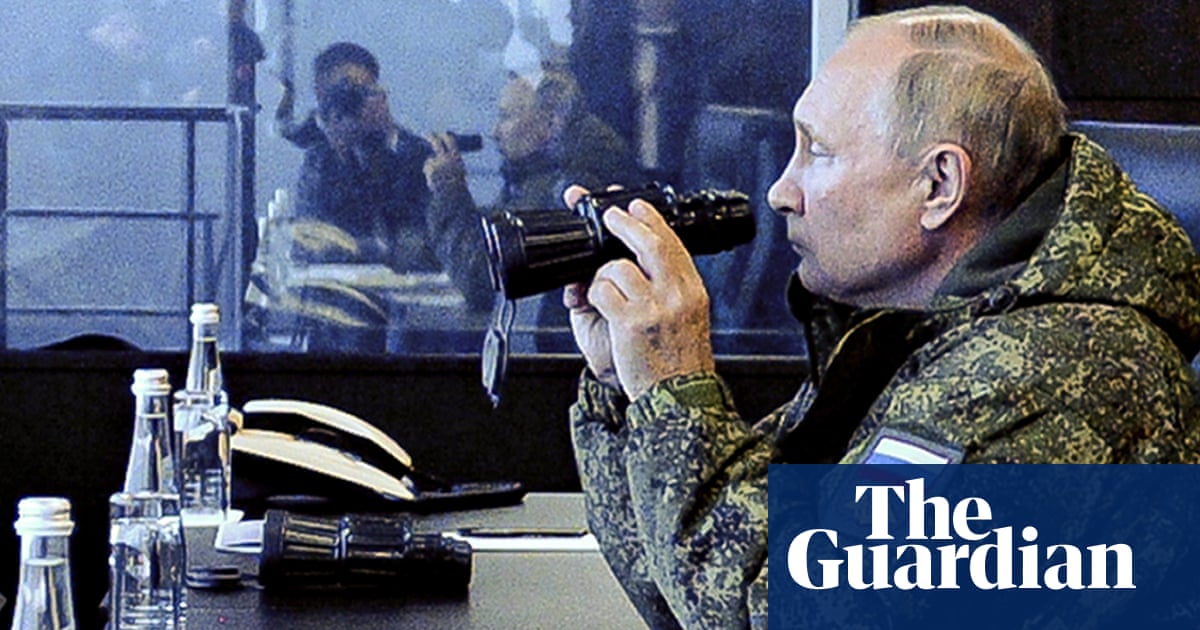I am very surprised by Simon Jenkins lamenting the lack of soft power shown to Russia (Note to Starmer and the other sabre-rattlers. Why spend billions on weapons – soft power would keep us safe, 26 June). He writes: “Every conceivable tool should have been deployed to introduce Russia into the European community of nations.”
Russia was incorporated into the G7, received a state visit from the Queen, and was added to Eurovision. Tony Blairgave Vladimir Putin silver cufflinksfor his birthday, and supported Russia’s war in Chechnya. None of this, not the facilitating of Russian oligarchic investment in the UK, not BP investing billions in Russia, not Russia hosting the Winter Olympics and World Cup, has worked.
Sometimes soft power simply ensures that tyrants continue to act with impunity, and ensures that the message “We disagree with your actions and want you to stop” falls on deaf ears.Chris RousellDurham
Simon Jenkins is absolutely correct. To spend $1.3bn on US aeroplanes whose operational use is subject to US approval serves only to repeat the continuing and expensive folly of Trident et al. To announce this in the same week as proposing to cut support for some of the most disadvantaged people in our grossly unequal society beggars belief.
Many years ago, Ralph Miliband argued that theLabourparty had become a “party of modest social reform”. Even this now seems overly optimistic. As a party member since the early 1970s, I am one of many thousands who are seriously thinking of resigning.Richard TaylorPooley Bridge, Cumbria
Simon Jenkins makes a compelling case. Arming ourselves to the teeth sustains hostility rather than fostering peace. The west missed the golden opportunity to end the cold war whenMikhail Gorbachev dismantled the Soviet Union. The end of the cold war would have made Nato redundant. Instead it was treated as a victory of capitalism over communism, and Nato was strengthened. That has led inexorably to Putin.
Soft power fosters mutuality. Overseas aid, properly targeted, helps communities to health education and self-reliance. It engenders a friendly disposition towards the aid-givers when it is politically unconditional. That is surely a more successful path to a safer world, rather than retreating behind a fortress mentality and spending on defence, which soaks up our public services resources while not solving real, existential global problems.John StoneThames Ditton, Surrey
Apparently Simon Jenkins thinks that in dealing with Putin’s Russia, soft power will keep us safe. It is a huge pity that the great Russian journalistAnna Politkovskayais not alive to comment on this story, but she was shot dead outside her Moscow apartment in 2006 – on Putin’s birthday as it happened.Natalia Estemirova, the Russian human rights activist might have said something, but she was murdered in 2009. PossiblySergei Magnitsky, the Russian tax lawyer, might have said something, but he died in police custody in 2009.Boris Nemtsov, the Russian opposition politician, would surely have offered a different point of view but he was assassinated within sight of the Kremlin in 2015. SadlyAlexei Navalnyis unable to rebut the wishful thinking of Jenkins as he died in a Russian gulag in 2024.Brendon BonnerPorirua, New Zealand
Of course Simon Jenkins is right to emphasise the importance of soft power, but surely we need both the hard and soft options? As Theodore Roosevelt said: “Speak softly and carry a big stick.”Dr David FineExeter
Have an opinion on anything you’ve read in the Guardian today? Pleaseemailus your letter and it will be considered for publication in ourletterssection.
